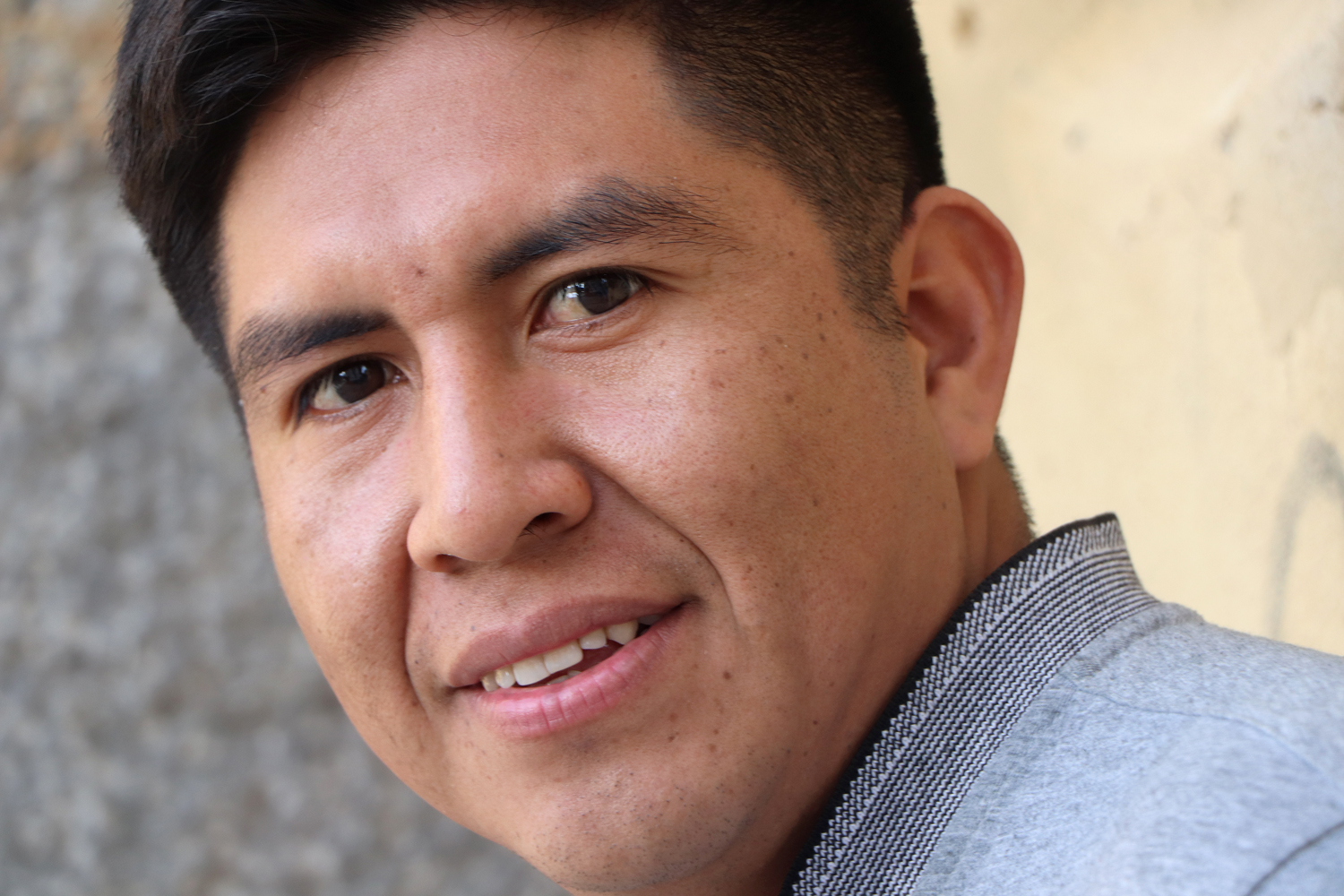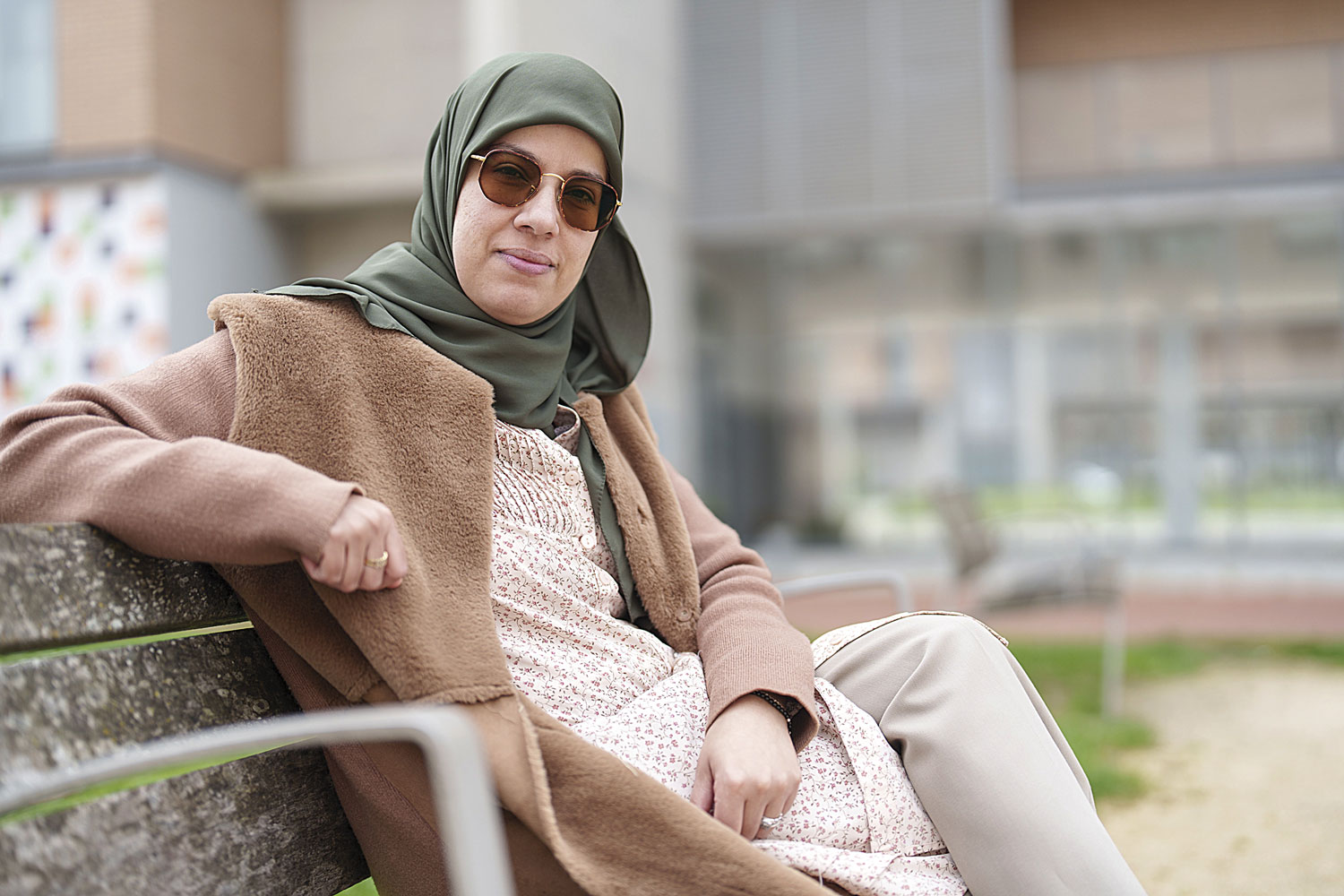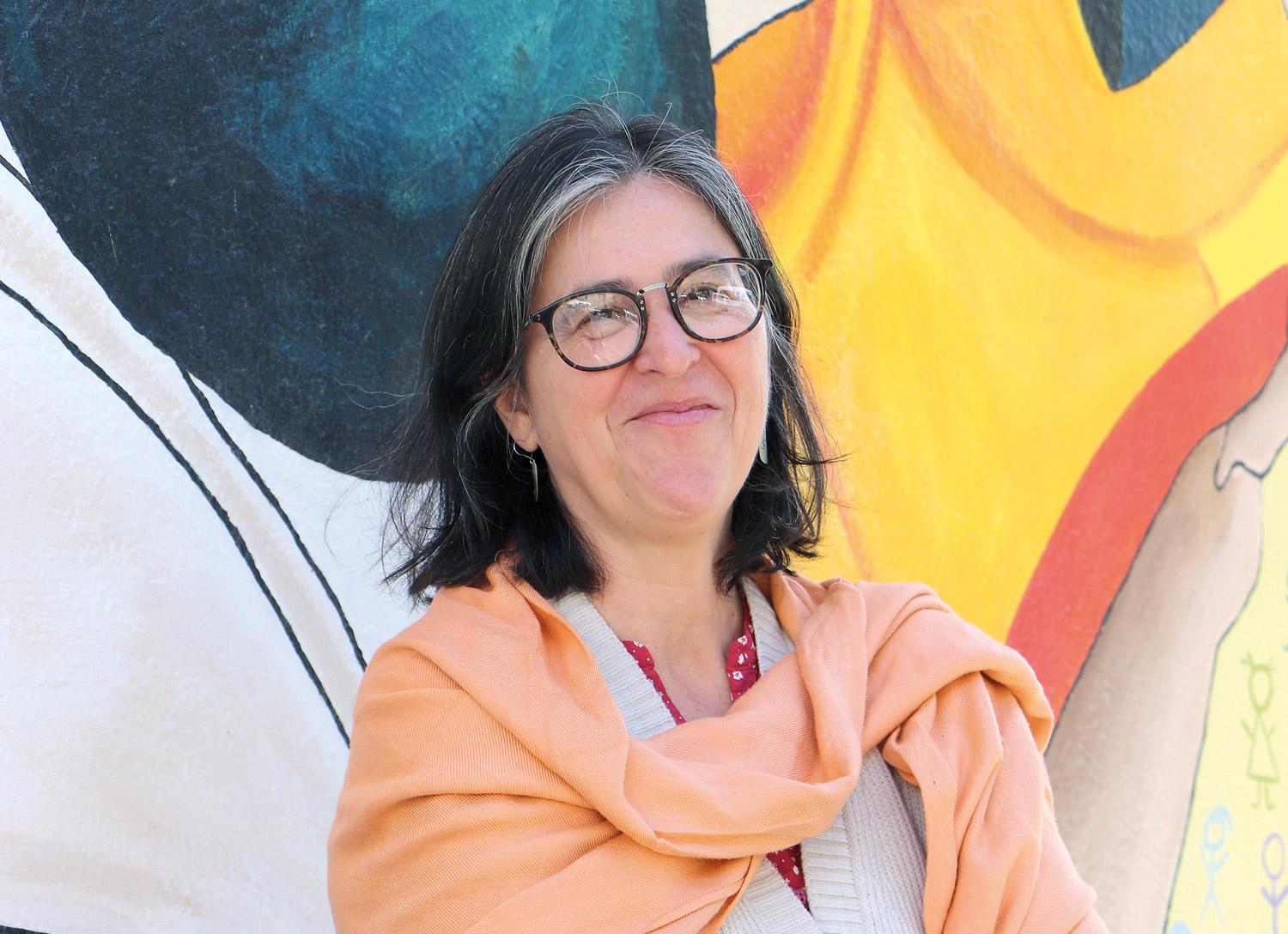"Guarania has been patron, incarcerated, enslaved."
- Organized by Garabide, Alex Pancho Robles (Camiri, Bolivia, 1995) was among us last October as part of the Language Revitalization Training Programme. He's a Guarani and speaks Guarani. About 8 million speakers throughout Bolivia, Brazil, Argentina and Paraguay have official language status in Bolivia and Paraguay, and in several other regions in two. Our interlocutor is an expert in journalism and communication. Cami is believed to be the oil capital of Bolivia, but the Pancho Robles route is not run by the black oil, but by the Guarani.

You live in Camiro, but not in the center of the city, but in the heart of a Guarani indigenous community.
And it is important to underline this. We live in the Itanamicua community, we are 360 families. Ita is stone, nambi is heard and that is hole. We live next to Cami, the Parapeti River separates us. We live from the city, but at the same time separated, which helps us to strengthen our culture and identity. At the time, our leaders were able to open the school where we live. We studied there until college.
That you live in the community, more possibilities to maintain your own cultural languages?
At one point, yes, because when electricity came in, there was a big change in our community. The introduction of electricity greatly influenced the situation of our language, as there was no television before, and nothing else. And in fact, our culture began to recede along with television, the knowledge transmitted from generation to generation, the stories and others. Until then, custom and law had gathered around the doorbell, so that older people would start counting legends and play. But when the electricity got going, the TV went into our homes and we all stayed watching, secluded from the old stories. And farewell to the myths!
In the Basque Country, before television, it is believed that it was radio that caused that loss.And it is more
now that cell phones have been introduced.
You're working in audiovisual media, for your community.
Yes. I have not studied a degree in college, but I have completed several training courses at the Centre for Film Formation and Realization (CEFREC) in Cochabamba. It is a non-profit association that promotes the use of audiovisual media in order to show the reality of rural indigenous communities. In this center, members of different indigenous communities are trained in communication, and that's where I learned.
Is the aim of this centre, therefore, to show the reality of indigenous communities?
Teach members of indigenous communities how to conduct communication like ours, from our own perspective and worldview. Reports about our territories -- and when we do, take our own look. That is what conventional means do not do. They either don't come to us, or they tell things that they're not when they come. I was interested in communication, I held a training course, in which I am practicing indigenous journalism and communication, working on the ability to express what one feels, speaking through ñe’e [Guarani language].
You work in Guarani, that is your mother tongue.
I was born in Guarani, because my parents were talking like this. They didn't even do it since discrimination. The parents grew up in the patron [on the farm], they spoke in guarani, although the pattern repressed them, preventing them from speaking in guarani. But not only did they resist, but they ultimately fled from that patron. They were kept in the present community and were free: they were able to live according to their culture. Since then, I can say, without fear of lying, that within the Pancho Robles family we are fervent drivers of culture, heirs of that path that their parents did. A total change was the escape of the patron to the bosom of the indigenous community.
I had never heard of it.
That is what our truths are! The parents could not do studies, they learned to read and write, because the pattern prevented them from learning anything, and even if it would have allowed them to learn anything, they should have been in Spanish, with the total exclusion of the Guarani. However, we won something, because I, for example, was born in the community. When the parents arrived there, there were only seven families in the community. It's the 1960s, and it's not just my parents' case, it's an example of friends. Several communities followed the same path. Guarania has been patron.
Your employer?
Imprisoned, I would say, enslaved, but our ancestors, even hidden, knew how to keep cultural languages alive. It is true that the patrons could not perform any cultural ritual. It was something else when they were released. I learned that when one escaped from the employer, one helped another to escape. That's how we've walked the Guaranis. Even today, thanks to the help of the institutions, we have made a documentary on territorial reconstruction [from the bosses to the indigenous communities] and have collected many painful testimonies. We've also made a fictional movie about this story. There are many materials on the subject, for young people it is very important to know the testimonies of our ancestors.
What do they count, for example?
My aunt, for example, denounced that the patterns had not let him study: “The pattern didn’t let me learn anything, and I couldn’t learn to read or write.” In the documentary he says that this makes him feel incompetent, which seems to him that he has not been able to give his children a better life. Now it is something else, because the children of the people of today are studying, the Guarani, and the Guarani, without discarding anything. This is how the guarania is gradually being liberated.
Are Guarani studies available today?
By law, yes. But at eleven o'clock, it's a burnt paper: the paper-written law doesn't apply. And on the other hand, they have built a story that has been imposed in part, according to which the guarani is a delay. That is what many fathers and mothers have thought, that their children have to learn Spanish, that in the future they will have more opportunities in Spanish and not in Guarani. You do not believe that the story did not open in vain; I myself had to reflect very much in order to reach my conclusions.
What consequences do you mean?That the mother
tongue is the most important thing. And so on.
And so?
The main language of Bolivia is Spanish, in most areas. The guarani has a legal recognition, even if the law is not complied with. I work a lot in the education system itself. At the age of Elementary Education, we have a son who I would like to know if they're taught to sing in Guarani, and I said to him, “Come on, sing something in Guarani.” And he doesn't know. In Spanish yes, in Guarani no. This shows the weight of the guarani in our educational system. However, it is often in the hands of the professor. Not all teachers value Guarani. Teachers can speak Guarani, they may also be taught in Guarani, but always prioritizing Spanish.
Do you not have any hands on your education system in
your community?Community leaders say they have to comply with what the high levels command. The community is governed by a statute, and many parents want to be strong in school for our sons and daughters to speak Guarani. There is no other way to revitalize the language. Transmission must be ensured. In the same vein, we try to work on the Socio-Productive Projects (PSP) to regain the main knowledge of the ancestors that is transmitted through crafts, pottery, etc.
Are you related to members of other communities?
I myself, yes. As a young language activist, I am in contact with other communities, especially through this documentary film that we have made. I also get requests to go and exhibit in one film and another, and so I've realized that every community has its own story, but that everyone has chosen to release it. Our film is also called this. Gu+rand+yu, “route of liberation”.
How did you think about making this documentary film?
It was a request from the head of the community. Aware of the age of the witnesses, worried that their testimonies will be lost forever, they made us a proposal to make the film, “must be done!”, we said and did. I'm proud, we can't show it in schools and in many places, to influence reflection. It is made in Guarani, with subtitles in Spanish. I just started working in the audiovisual world, and I came up with a big challenge. I am passionate about our language and culture, I do what I like, doing what I best know how to do. I mean, rolling.
How did you get to the Garabideko Adituak program?
I always go back and forth in salsa, with those in charge of the community, with the classmates of the indigenous journalism school... On one occasion I collaborated with the great Guarani writer Elias Caurey, and then the community leaders invited me to come to Garabide. They explained to me more or less what Garabide is doing, and they asked me what it seemed to me to come here, and so on!
In your stay in the world you have met members of the four communities on the four shores. What would you highlight? That
we are all indigenous peoples, that we have the same problems, whether in Morocco, or in Bolivia, or in Haiti ... And on the other hand, we're all language activists, we live concerned about the situation of mother tongues, aware that they're in danger of extinction, and also aware that language is our identity: our life, our way of being. Language is no longer an instrument of communication. It's the worldview, it's the philosophy of life. If the mother tongue dies, all the cultural heritage will die, because the language joins all the knowledge of the ancestors. As for me, language is everything, everything. Language is much more than a communication tool.
Comemote
“At university, the professor sent me to go to the blackboard. There was a calculation problem to solve. I was in front of 150 students, I got nervous, and I erroneously took advantage of some mathematical sign. And the faculty: Where have you learned? ‘Itanambikuan’. The professor said: ‘No, Gero!’ ‘Itanambikuan’. And the professor said, Ah, that's why you don't know anything! You should go back to Elementary, to study!’ I didn't know where to hide. Because I was rural, because I was Guarani ... It humbled me a lot. But I didn't forgive him. He will empower me! I will teach that teacher!’ And so I did, I got a good grade on the next test, to all those who showed us that it's also us! And yet, the city believes that the Guaranis are not able to do it. Ah, that's me! Rural!’, they shout dishonestly. Or, ‘hori comemotte!’. Mote, it's corn. That is, we are corn-eaters.”












